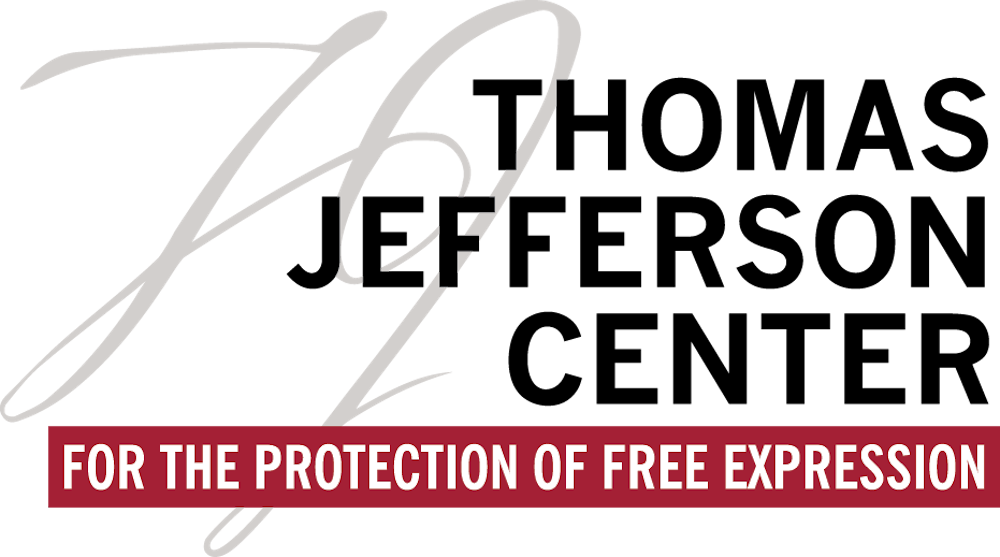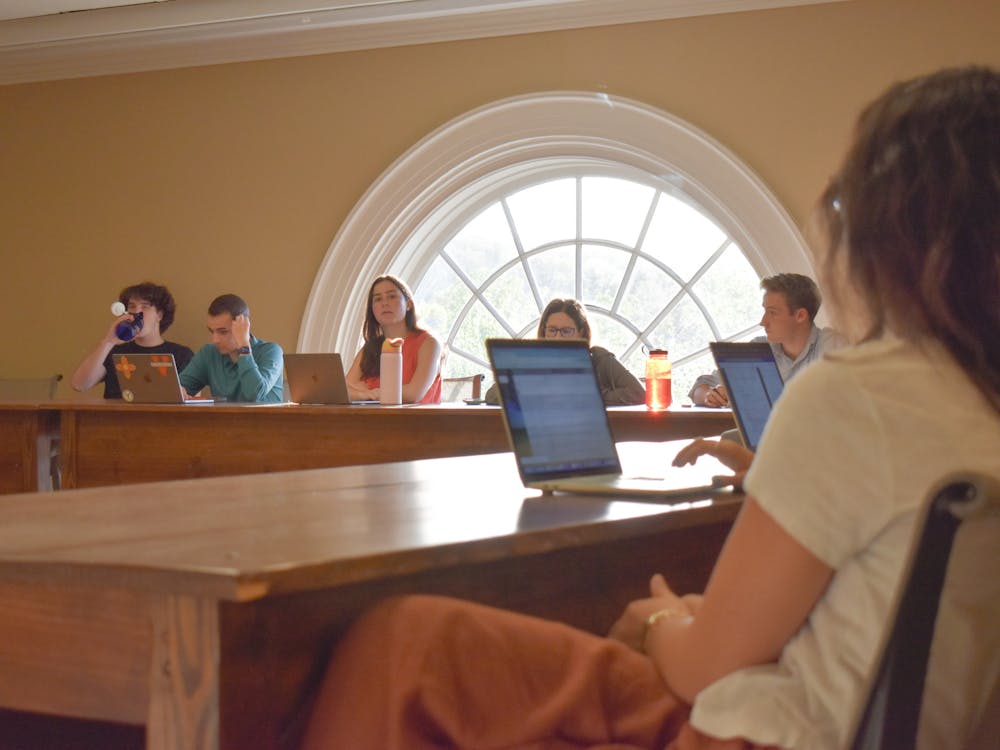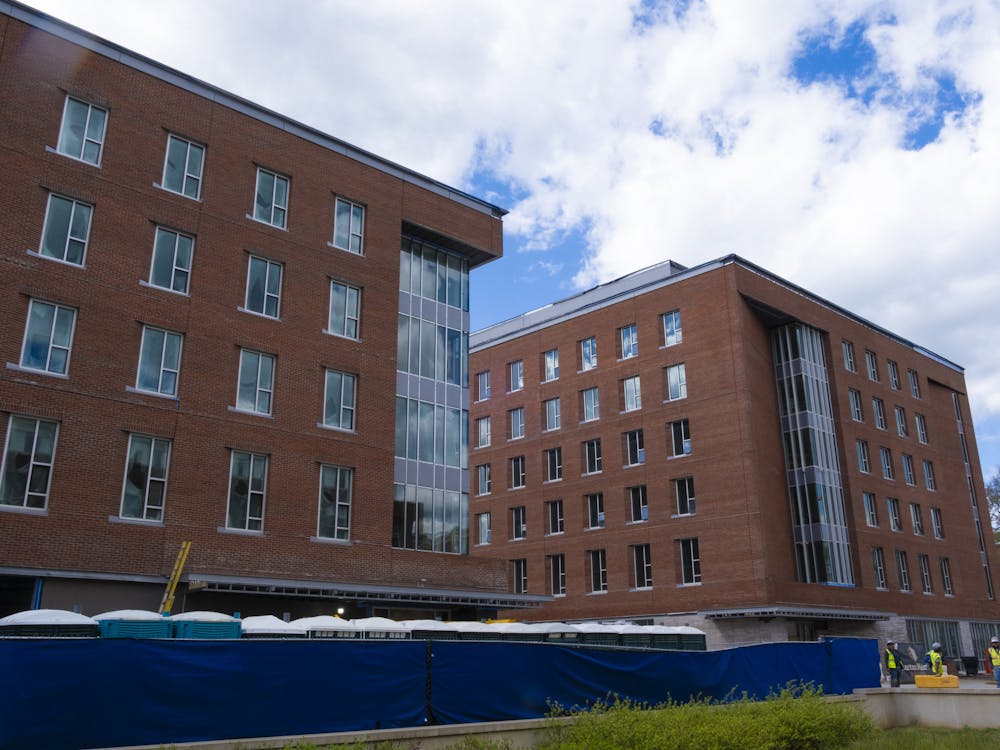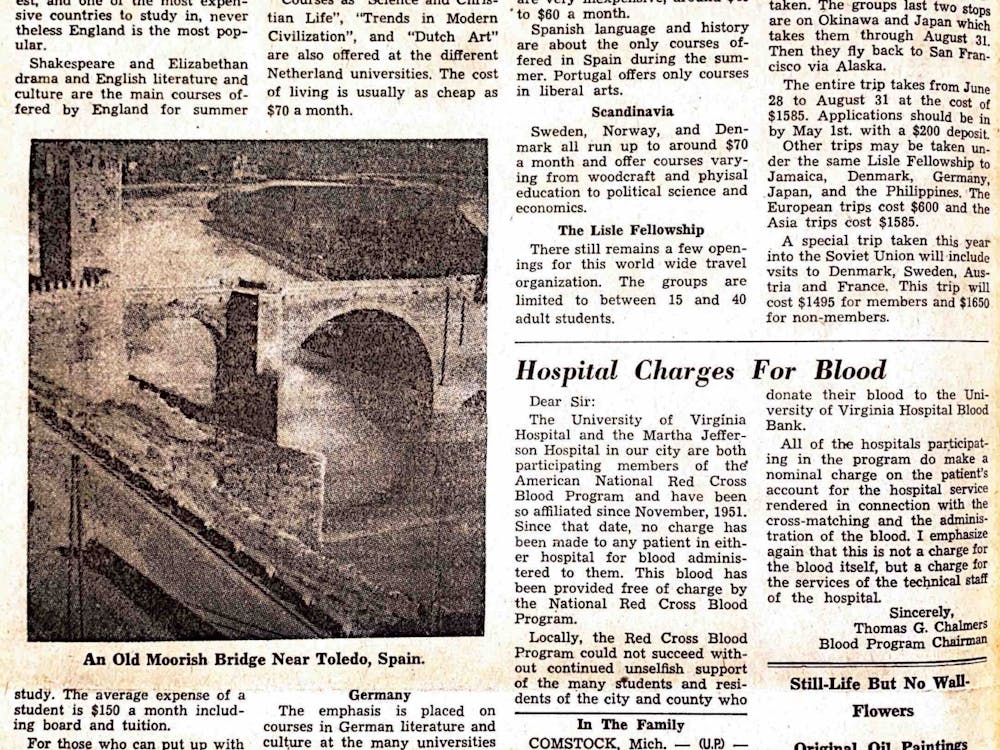Freedom of speech in academia was the subject of the University’s third biennial Jefferson Symposium late last week. On Oct. 13-14, the Law School hosted a group of administrators, scholars and activists for a discussion of First Amendment issues and their connection to topics such as race relations and Title IX policy.
Featured speakers Friday included University President Teresa Sullivan, Vikram Amar, dean of the University of Illinois School of Law, and Susan Kruth of the Foundation for Individual Rights in Education, among others.
In her speech, Sullivan addressed both recent comments regarding Black Lives Matter made by Douglas Muir, a lecturer in the Engineering school and the Darden school, and the men’s basketball team’s recent decision to kneel during the singing of the national anthem in protest against police shootings.
The controversies surrounding the University’s reaction to those two incidents were largely due to “the difficulty of making good responses in a social media firestorm,” Sullivan said.
“I don’t think either the basketball team or Mr. Muir anticipated that that would happen, so that meant they were not well positioned to be able to comment on it, and the University was then placed in the position of saying, ‘Was this official speech? Is this what the University believes?’ That’s the basic issue,” Sullivan said.
Similarly, Amar spoke on the need for clearly defined policies regarding speech by academic faculty and others associated with universities.
“I tend to think of academic freedom not so much as a right to say what I want to say, but a right to know what’s going to get me in trouble,” Amar said. “There has to be clear guidance about what crosses the line, and you don’t want academics to be sandbagged. I think that’s bad business and at some point it violates the Constitution.”
Amar also stressed the importance of individual teacher-student relationships as a means of shaping civil discourse, as opposed to policy-based approaches.
“I think a lot of the most important instruction about how to communicate civilly and in a sophisticated way takes place one-on-one,” Amar said. “It’s in your office when you’re talking to a student, when you can get a sense of where he or she comes from and why he or she feels what he or she feels, and you can share your own background.”
In a panel on “Free Speech vs. Hostile Environment,” Kruth, an attorney for FIRE and former fellow of the Thomas Jefferson Center for the Protection of Free Expression, addressed alleged overreach on the part of both the Department of Education and academic institutions regarding Title IX provisions.
Kruth said Title IX investigators have been responsible for broadening the definition of sexual harassment.
In particular, Kruth cited the case of a student at the University of Tennessee who is currently the subject of a Title IX investigation for an incident related to an answer he gave on a quiz question asking him to give the name of his lab instructor.
“The quiz said to make something good up if the student didn’t know,” Kruth said. “The student in question didn’t know, so he took a very common first name and a very common last name and wrote them down together on the quiz, and that name was Sarah Jackson.”
The professor for the course determined that the answer met the Title IX definition of sexual harassment due to the fact that Sarah Jackson is the name of a lingerie and nude model.
“The vast majority of speech is constitutionally protected, but when speech creates a hostile environment as defined by law, that constitutes harassment,” Kruth said.
The legal boundaries of what constitutes a hostile environment in practice are narrowly drawn, Kruth said, especially in an educational context.
“That way schools will punish greatly harmful speech while also ensuring students and professors can enjoy the full extent of their free speech rights,” Kruth said.





